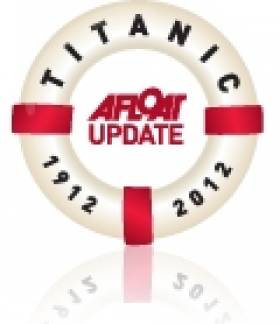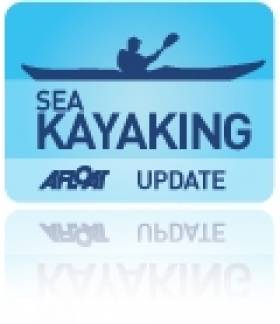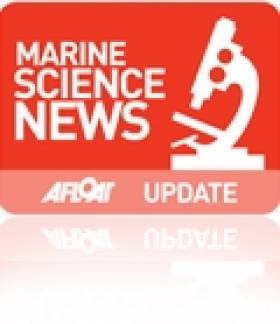Displaying items by tag: Expedition
First Irishman to Dive Titanic Site Shares His Story
#TITANIC - To mark the 100th anniversary of the sinking of the Titanic, JOE.ie sat down with the first Irishman to dive the historic wreckage.
In 2000, Rory Golden descended two-and-a-half miles beneath the surface of the Atlantic to witness the Titanic's watery gravesite.
“When I first cast my eyes on the wreck," he says, "for me it was just an incredibly exciting and equally humbling and incredibly poignant moment and you have all these emotions all at once because you are looking at something very few people in the world have seen.”
Amazingly, the self-avowed Titanic expert wasn't originally a part of the dive team for the expedition.
"My role at the time was to be the dive safety supervisor, but that whole role changed over the course of the expedition," he says. “There was no guarantee of me going down there because I was very low in the pecking order."
But a memorial plaque he brought with him from Cobh ended up being Golden's ticket to the TItanic, joining the crew aboard an 18-tonne Russian submarine.
And he came back with more than memories, too, as a glint in the corner of his eye turned out to be the remains of the ship's wheel.
"I was the first person to touch the wheel of the ship since it went down in 1912 and probably the last person to hold it before it went down was Captain Smith.”
JOE.ie has much more on the story HERE.
Duo Set for Sea Kayaking Challenge off Western Scotland
#SEA KAYAKING - Brit duo Andy Pearson and Paul A'bear will embark on a 500-mile sea kayaking voyage along Scotland's west coast this summer in aid of charity.
Canoe & Kayak UK reports that the pair will set out from the Solway Firth near the Scottish border at the end of June on the expedition that will take them through the Irish Sea to the Atlantic Ocean.
The adventure will see them paddle through "wild, stormy seas" and "some of the strongest tidal currents in the world".
Pearson and A'bear, who have been friends since primary school, hope to raise at least £1,000 for Cancer Research UK.
For more details on their adventure visit www.westcoastchallenge2012.co.uk.
Irish Lead Mission to Find New Life on the Ocean Floor
An Irish-led marine research mission has set off to discover strange new lifeforms that inhabit the deepest parts of our oceans.
In collaboration with scientists from the UK’s National Oceanography Centre, the team sailed from Galway earlier this week bound for the Mid-Atlantic Ridge to investigate life at 3,000m below the surface of the sea.
Using a remotely operated vehicle (ROV) they will explore for the first time the 45o North MAR hydrothermal vent field, where vents spew mineral-rich seawater heated to boiling point in the earth’s crust. These are home to a rich variety of marine life that thrives in complete darkness on bacteria fed by chemicals.
Patrick Collins from NUI Galway’s Ryan Institute will lead Ireland's marine biological team investigating this unique ecosystem, which could tell us not only about how life might have evolved on other planets, but may also be a rich source of new biochemical processes with valuable medical and industrial applications.
"There is potential here to put Ireland on the global map as a serious player in deep sea science," said Collins. "This is all the more timely with the exploitation of deep sea and hydrothermal vents for precious metals and rare earth minerals now a reality.”
The mission carries geochemists, marine biologists, marine geologists, marine geneticists and technicians from Ireland and the UK as well as a three-person TV crew from National Geographic.
They will spend 25 days at sea and will be posting a regular blog on scientistsatsea.blogspot.com.
Shackleton Exhibition's Photo ‘Polar’ Prize
To celebrate the achievements of Shackleton and Hurley's stunning photographic collection, the (MMM) want you to share your photos of spectacular scenery, unusual locations and far-flung destinations. Just add them to the Flickr group to be in a chance of a family concert ticket for the Royal Liverpool Philharmonic's unique combined film and music experience 'Polar'.
The cinematic portrait of the Arctic and Antarctic explores the homeland of the polar bears and humpback whales. The moving imagery will be accompanied by a live orchestral soundtrack performed by the world-renowned orchestra.
For further detailed information about the competition and entry rules logon HERE.
The Endurance: Shackleton's Antarctic Adventure at the Merseyside Maritime Museum is open to the public free of charge until the 27 February 2011. For more info logon HERE






























































